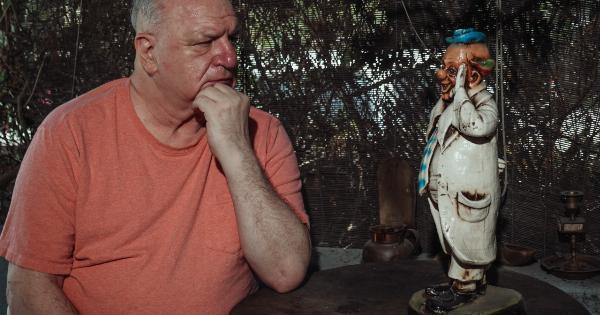A stroke is a medical condition that occurs when a blood clot blocks an artery or a blood vessel breaks, interrupting the blood flow to the brain.
This sudden disruption of blood flow can have severe consequences, affecting various aspects of a person’s life. While physical disabilities and impairments are commonly associated with strokes, the impact on mental health is often overlooked or underestimated.
The aftermath of a stroke can bring about significant changes in a person’s emotional well-being, leading to various mental health risks that may persist even after the physical symptoms have improved.
The Emotional Rollercoaster: Post-stroke Depression
Post-stroke depression (PSD) is a common yet often overlooked consequence of a stroke. It is estimated that around one-third of stroke survivors experience depressive symptoms, and up to 20% develop a major depressive disorder.
The sudden and unexpected changes in one’s physical abilities, independence, and lifestyle can lead to feelings of sadness, grief, and frustration. Moreover, the neurological damage caused by a stroke can also directly contribute to the development of depression through chemical imbalances in the brain.
The Vicious Cycle: Anxiety and Fear
Strokes can also trigger or exacerbate anxiety disorders in individuals. The fear of another stroke, known as “post-stroke anxiety,” can consume a person’s thoughts and significantly impact their day-to-day life.
Anxiety disorders may manifest as panic attacks, excessive worrying, restlessness, and difficulty sleeping. These emotional and psychological symptoms can further hinder the stroke survivor’s recovery and quality of life.
Unforeseen Consequences: Cognitive Impairments and Dementia
Cognitive impairments are another significant consequence of strokes, particularly those that affect the higher functions of the brain.
Stroke survivors may experience difficulties with memory, attention, concentration, problem-solving, and language skills. These cognitive impairments can significantly impact their ability to perform daily tasks, maintain relationships, and engage in activities they once enjoyed.
The Silent Struggle: Emotional Liability
Emotional liability, also known as pseudobulbar affect (PBA), is a condition characterized by involuntary and uncontrollable emotional expressions.
Individuals affected by emotional liability may burst into laughter or tears without a corresponding emotional trigger. Although emotional liability is not directly a mental health disorder, it can lead to social stigma, embarrassment, and psychological distress.
Managing emotional liability requires appropriate understanding and support from healthcare professionals and caregivers.
Impact on Relationships and Social Isolation
The mental health consequences of stroke extend beyond the individual survivor and can significantly impact their relationships with family, friends, and even caregivers.
The sudden changes in mood, behavior, and cognitive abilities can strain relationships and make it challenging for both parties to adjust. Additionally, the physical limitations and lifestyle adjustments after a stroke may result in social isolation, leading to feelings of loneliness, resentment, and further deterioration of mental well-being.
Addressing Mental Health in Stroke Rehabilitation
Recognizing and addressing the mental health risks associated with stroke is crucial for ensuring comprehensive rehabilitation and improving overall outcomes.
Healthcare providers involved in stroke rehabilitation should adopt a multidisciplinary approach that includes psychiatrists, psychologists, and social workers. Developing a personalized care plan that focuses not only on physical recovery but also on mental health is essential for fostering holistic well-being.
Psychotherapy and Supportive Interventions
Psychotherapy, such as cognitive-behavioral therapy (CBT) and mindfulness-based interventions, can play a significant role in addressing the mental health challenges faced by stroke survivors.
These approaches aim to identify and modify negative thoughts, beliefs, and behaviors, fostering resilience and enhancing coping mechanisms. Additionally, support groups and peer-led programs provide opportunities for stroke survivors to share experiences, gain support, and combat feelings of isolation.
Medication and Pharmacological Interventions
Pharmacological interventions may also be necessary in some cases to manage the mental health consequences of stroke.
Antidepressant medication, such as selective serotonin reuptake inhibitors (SSRIs), can be effective in treating post-stroke depression. However, a careful assessment of the individual’s medical condition, potential drug interactions, and side effects should be undertaken before initiating any pharmacological treatment.
Caregiver Support and Education
Recognizing the impact of stroke on mental health is crucial not only for survivors but also for their caregivers.
Caregivers often experience significant emotional and psychological strain as they navigate the challenges of supporting a stroke survivor. Providing education, training, and professional support to caregivers can help prevent burnout, enhance their ability to provide effective care, and improve the overall well-being of both the caregiver and the survivor.
Resilience and Hope: Moving Forward After a Stroke
While the impact of stroke on mental health can be profound, it is important to remember that recovery and rehabilitation are possible.
With proper medical care, emotional support, and rehabilitation interventions, stroke survivors can regain a sense of control, independence, and overall well-being. By understanding the latent mental health risks associated with strokes and addressing them in a comprehensive and compassionate manner, we can work towards improving the lives of stroke survivors and their loved ones.































